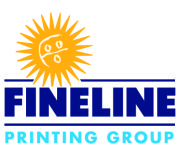How to Stand Out in Your Education Marketing

Written by Bart Caylor, President and Founder, Caylor Solutions
To Be Outstanding, You Have to Think More
To stand out in any field, you have to understand the context. In education marketing, the context is to segment, be relevant, and anticipate the questions to provide the answers. Your goal as a marketer is to remove the noise and provide a clear means to assist your audience.
I was recently traveling to a meeting and realized I had failed to print out my agenda. The meeting was 2 hours away, and I was well on my way when I realized my mistake. I knew that there was not a FedEx Office anywhere on the way and desperately tried to solve the problem as I drove. I remembered that when I travel, I often stay in the Hilton suite of properties and that I was a Hilton Honors member. The next exit had a Hampton Inn. I pulled over, explained my situation at the desk, and without a second thought, was escorted to the business center to print out my agendas. When I offered to pay, I was told that there was no charge and this was just part of their dedication to their customers.
 This experience was above and beyond the expected…especially since I had never stayed in that particular hotel and they had no context for me. But, they understood me as part of their customer base, they chose to be relevant to my problem, and well before I walked in, the Hilton corporation anticipated the needs of business customers and chose to provide the answers to my needs.
This experience was above and beyond the expected…especially since I had never stayed in that particular hotel and they had no context for me. But, they understood me as part of their customer base, they chose to be relevant to my problem, and well before I walked in, the Hilton corporation anticipated the needs of business customers and chose to provide the answers to my needs.
You, too, can stand out in your education marketing and elevate your brand in the same manner.
Segment Your Audience
Far too often, I see schools and organizations treat all of their audiences the same. Sure, they’ll create separate messaging for enrollment and donors, but when it comes to segmenting messaging beyond the broad buckets, it is often lacking.
“All things to all people is nothing to everyone.”
Business author Patrick Lencioni is quoted as saying “All things to all people is nothing to everyone.” That is so true when you fail to segment your audiences in your communications. That includes segmentation within email, printed materials, and social media. It can also include segmentation on the website and other digital elements based upon known factors.
Most schools have various audiences just in admissions: traditional prospective students (Generation Z), transfer students, graduate and adult students as well as the online audience. Beyond admissions, schools will have segments within alumni (young alumni through mature audiences), parents, and various classes of donors. Even the community (internal and external) is a segment of your overall audience.
As outlined in Fineline’s most recent Connect Magazine, it is critical to have a well-defined CRM system (contact relationship manager) as well as marketing software that can assist in managing and coordinating your marketing and communications. Using messaging and elements that speak to each audience segment will increase the success of your marketing campaigns.
 Automate and be as efficient as possible with tools like segmented newsletters, variable data printing, and unique messaging per social network where the target audience congregates (you did know that Generation Z is not on Facebook, right?)
Automate and be as efficient as possible with tools like segmented newsletters, variable data printing, and unique messaging per social network where the target audience congregates (you did know that Generation Z is not on Facebook, right?)
Be Relevant and Unique
In addition to segmentation, providing relevant and unique content is critical. So many institutions rely on the standard education benefits, they fail to stand on the unique aspects of their own brand and distinctives. The trend is so prevalent that the Philadelphia ad agency 160over90 has curated a list of the most undistinctive taglines in their book Three and a Tree.
Your marketing has to address the needs of your audience through relevancy in addition to communicating your institution’s unique distinctiveness. Keep your marketing focused on the audience and you’ll be on the path toward relevancy.
Anticipate the Questions to Provide the Answers
One of the best ways to be relevant to your audience is to anticipate questions that they may have about your institution and service and provide the answers through your marketing. Jay Baer, author of the book Youtility, describes the radical idea of being as transparent and useful as possible: “Providing answers to nearly every question a customer could conceivably ask—before they think to ask it.” By doing so, you are partnering with your audience. You become a friend and partner on their journey (whether it be shopping for an education or understanding giving options). Baer also adds that “success flows to organizations that inform, not organizations that promote.” Does your marketing inform and provide the answers that your prospects and audiences are seeking or does it simply add to the noise of promotion that is already in a noisy world?
“Success flows to organizations that inform, not organizations that promote.”
What are you doing to stand out in your marketing? Are you using the right tools and teaming up with the right partners to provide for your audience?
Leave a comment below and let us know how you stand out in your marketing efforts.
About the Expert
Bart Caylor, President and Founder, Caylor Solutions

With a career spanning nearly 20 years, Bart leverages his vast experience for his clients. Caylor has been honored to have relationships with a broad range of clients. For years, as part owner of one of the largest digital design and branding firms in Indianapolis, he was responsible for a number of higher education accounts, as well as new media initiatives for clients such as Motorola, Ingersoll Rand, Roche Diagnostics, Community Health Network, RCA, and Lexmark. Bart led several large-scale web initiatives, garnering acclaim in The Chronicle of Higher Education and U.S. News and World Report, as well as earning several awards, including a National Circle of Excellence Award through CASE including sites for Anderson University, Taylor University, Franklin College, Marian University, among others.
Bart graduated magna cum laude from Anderson University, is a member of the Council for Advancement and Support of Education (CASE), and has served as president of the Anderson University Alumni Council. He currently serves on the Anderson University National Campaign Cabinet. Bart is often asked to speak at universities and conferences on topics related to web design, emerging media and interactive marketing.
